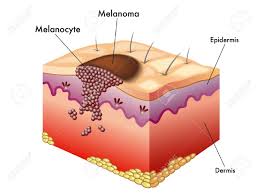
Diagnosed with Cancer? Your two greatest challenges are understanding cancer and understanding possible side effects from chemo and radiation. Knowledge is Power!
Learn about conventional, complementary, and integrative therapies.
Dealing with treatment side effects? Learn about evidence-based therapies to alleviate your symptoms.
Click the orange button to the right to learn more.
- You are here:
- Home »
- Blog »
- non-conventional therapies »
- Pediatric Cancer- Non-Melanoma Skin Cancer
Pediatric Cancer- Non-Melanoma Skin Cancer

Reduce the Risk of Non-Melanoma Skin Cancer Through Evidence-based, Non-toxic Therapies
Pediatric cancer survivors have a much better chance of living a long life today compared to 50 years ago. Conventional oncology has learned how to cure cancer in young patients with aggressive toxic chemotherapy regimens.
The problem is that aggressive or high-dose chemo leads to genetic changes and bodily damage. The article linked and excerpted below explains that Pediatric cancer patients face an increased risk of several cancers- especially non-melanoma skin cancer.
I want to be clear. Even though I am a long-term cancer survivor who lives with several long-term and late stage side effects due to my own aggressive therapies more than 25 years ago, I am a parent first and always. I can understand exposing my child to aggressive chemo if it meant curing my son’s cancer.
However it is important to understand that it is possible to reduce the long-term risks of non-melanoma skin cancer to the pediatric cancer survivor hrough a range of evidence-based, non-toxic therapies.
I have six of the “risks” for NMSC listed below so you can be sure that I make it my business to live a regimen of therapies that research shows will reduce my risk of NMSC.
Non-Melanoma Skin Cancer at a Glance-
- Risks– UV Exposure, HPV, Genetics, Skin Pigment, Immunosuppression, Radiation Therapy, Age, Previous Skin Cancer,
- Symptoms– Itching, Bleeding, Shape (A,B,C,D,E).
- Diagnosis– Visual inspection (A,B,C,D,E), Skin Biopsy (Shave, Punch, Incisional/Excisional)
- Prognosis- Staging-
- Therapy– Conventional, Non-Conventional, Integrative, Alternative
- To Learn More About Pediatric Cancer Side Effects- click now
- To Learn More about side effect prevention- click now
- To Learn More about DNA damage caused by chemotherapy and radiation- click now
For more information about reducing those risks to pediatric cancer survivors please scroll down the page, post a question or comment and I will reply to you ASAP.
Thanks
David Emerson
- Cancer Survivor
- Cancer Coach
- Director PeopleBeatingCancer
Recommended Reading:
- Cancer Survivors and Mind-Body Therapy
- Inflammation, Chemotherapy, Cardiovascular Risks, Fibrinogen and the Cancer Survivor
- A Long-term Cancer Survivor’s Diet, Nutrition Plan-
AACR: Genetic Mutations Seen in Many Childhood Cancer Survivors
“Many survivors of childhood cancer have mutations in cancer-associated genes, possibly increasing their risk for cancers later in life, according to research…
The new study included 3,007 patients who survived childhood cancer for five years or more. Twelve percent had changes in one of 156 genes linked to increased risk of cancer, the researchers found.
By age 45, more than one-quarter of the patients (25.5 percent) had developed another cancer, most commonly meningioma, thyroid cancer, breast cancer, and non-melanoma skin cancer, according to the investigators…


